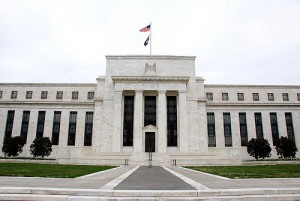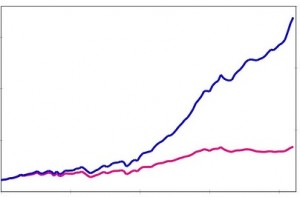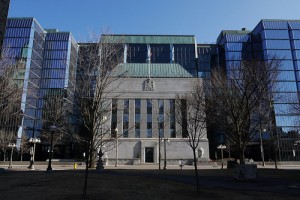Posted on 13 January 2011.
 Banks repossessed a record of 2.87 million homes in US throughout the year 2010 as the two year-old mortgage crisis continued to be a burden in the economy, according to foreclosure specialist RealtyTrac.
Banks repossessed a record of 2.87 million homes in US throughout the year 2010 as the two year-old mortgage crisis continued to be a burden in the economy, according to foreclosure specialist RealtyTrac.
Foreclosures reached 2.23 percent of all housing in the country, which is equivalent to one out of 45 homes. This increased from 2.21 percent in 2009, the RealtyTrac stated in its report for 2010.
However, the rate of foreclosures smoothened in the fourth quarter when banks received rising legal challenges form the owners who got mad because banks took their homes under a haphazard process.
The report showed that December’s 257,747 foreclosure filing were 26 percent lower than the number of foreclosures during the earlier period of the year, and were two percent low from month to month.
RealtyTrac chief executive James Saccacio said in a statement that the total properties receiving foreclosure filings would have simply surpassed three million in 2010 if it was not for a fourth quarter drop in foreclosure activity.
However, Saccacio predicted that the estimated 250,000 foreclosures halted during the fourth quarter would be reopened in early 2011.
Foreclosure rates have increased in three states namely, Arizona, Florida, and Nevada. These were the three Sunbelts states that had wide real estate overbuilding and speculative investment during the property boom in 2002-2007.
In Arizona, foreclosures reached 5.7 percent of all homes while Florida reached 5.5 percent. In Nevada, one in 11 homes or 9 percent of all homes was hit with a foreclosure filing last year.
Arizona and Nevada filed lawsuits against Bank of America denouncing it of deceiving cash-strapped homeowners in the middle of the global economic downturn.
Posted in Finance
Posted on 12 January 2011.
 The stunted labor market in the United States may be heading up, according to a report coming from the Federal Reserve that found moderately better job conditions throughout the country.
The stunted labor market in the United States may be heading up, according to a report coming from the Federal Reserve that found moderately better job conditions throughout the country.
The Fed’s Beige Book was based on the anecdotal reports that the central bank has gathered from its business contacts in the regional branches and showed an increasingly bright, yet guarded picture.
The results matched with the recent increase in the U.S economic data that impelled some economists to raise their growth forecasts in the first half of this year.
The Fed said that all district reports indicated that employment levels are increasing in at least some areas, usually by moderate amounts. Manufacturing also emerged to be doing well. However, many businesses are still in a wary while U.S housing sector is still left in a rut.
Meanwhile, the latest data showed modestly better outlook on U.S home mortgages as lending rates were relieved from recent highs. The seasonally adjusted index of mortgage application activity rose 2.2 percent last week, according to the Mortgage Bankers Association. The figures went up its highest level in just one month.
The report by Fed also forecasted an increase in price pressures for businesses. However, there is little evidence that this will be passed on to consumers. The findings reflected the data on import prices that jumped 1.1 percent in December after a revised 1.5 percent increase in November.
According to the Labor Department, prices were up 4.8 percent last year. A low inflation environment in the country has permitted the Federal Reserve to maintain a very loose monetary policy. However, the recent increase in global energy and commodity prices has lifted some concern regarding cost pressures.
Posted in Business
Posted on 12 January 2011.
 Strong earnings from big retailers, as well as an update to for Hewlett-Packard helped put stocks to better position on Tuesday.
Strong earnings from big retailers, as well as an update to for Hewlett-Packard helped put stocks to better position on Tuesday.
Two companies raised their earning forecasts for this year. Sears Holdings Corp said that they could earn twice as much as the analysts had foretold this year. Tiffany & Co. also said that vigorous holiday sales will push their earnings higher.
According to Matt Lloyd, chief investment strategist at Advisors Asset Management, the consumer stocks have been left for dead. The consumer companies had slashed so many costs during the recession and he said that any slight changes in the spending this year will make a much bigger effect on margins.
Hewlett-Packard Co. became one of the leaders in the Dow Jones industrial average. This happened when analysts at the UBS increased their earnings estimates for the company that creates computers.
AT&T Inc. and Verizon Communications Inc. were the two lowest companies on the Dow Jones list. Verizon fell 1.6 percent to $35.36 while AT&T fell 1.5 percent to $27.91.
Verizon will start selling their version of Apple Inc’s iPhone this coming February 10. This will break AT&T’s strong grip on the famous phone. They were the exclusive carrier of the phone since launched in 2007.
Aside from stocks, yields went higher as bond prices fell. The yield on the 10-year Treasury note increased to 3.34 percent from 3.29 percent late Monday. The yield is utilized to put interest rates on several kinds of loans that includes mortgages.
There are about three stocks that increased for every one that dropped on the New York Stock Exchange. The consolidated volume noted was 4.1 billion shares.
Posted in Finance
Posted on 07 January 2011.
 The dollar will decline this year as the Federal Reserve keeps the interest rates near to zero and the fiscal deficit stays close to record despite the extension of Bush-era tax cuts, the JPMorgan Chase & Co said.
The dollar will decline this year as the Federal Reserve keeps the interest rates near to zero and the fiscal deficit stays close to record despite the extension of Bush-era tax cuts, the JPMorgan Chase & Co said.
John Normand, the head of currency strategy at JPMorgan London, said that dollar will drop about 12 percent to $1.48 per euro and 7 percent to 78 yen by the end of year 2011. The bank predicts that Canadian dollar will be the best performer among the major currencies this year if oil averages above $100 per barrel.
In addition, Normand said that U.S currency will be utilized to fund the so-called carry trades, which will then be used to buy higher-yielding currencies.
The growth of U.S economy is not enough to support the dollar since it is highly improbable that the Fed will increase interest rates over the next 12 months. Normand said in an interview that few people will purchase the dollar as an investment, but they will use it as a funding currency.
The currency increased 7 percent versus the euro last year. However, it dropped 13 percent against the yen, which is thought as the biggest turn down against a major currency, when record-low interest rates in the U.S reduced the appeal of American assets.
Normand said the Federal Reserve is not likely to increase the interest rates this year for the reason that inflation pressures still remain submissive. The currency might also suffer from increasing current account deficit.
However, the JPMorgan forecast tells that the U.S economy might increase, from 2.9 percent growth in 2010 to 3.3 percent this year. Consumer prices will also rise 1.2 percent from the average 2.5 percent in the past ten years.
Posted in Business, Featured News
Posted on 30 December 2010.
 A blizzard that hit the Northeast on Sunday and Monday cost retailers $1 billion in sales according to the recent estimates done by the shopper-traffic counting technology data analysis company, ShopperTrak.
A blizzard that hit the Northeast on Sunday and Monday cost retailers $1 billion in sales according to the recent estimates done by the shopper-traffic counting technology data analysis company, ShopperTrak.
ShopperTrak also found that the foot traffic recorded on December 26 was 11.2% down from what they had previously forecasted as reported by CNN Money.
A blizzard can cost governments, as well as businesses excessive amounts of money. It is considered more than inconvenient. When the roads are covered with snow, most shoppers stay at home like what happened in the Northeast over the past few days.
According to ShopperTrack founder Bill Martin, it was expected that the 2010 blizzard which stretched over the Northeast halted almost all retail visits and spending during a time that is somewhat crucial for all retailers.
He also added that based on their analysis, Northeast stores and malls dropped over 6% from last year’s day after Christmas, and almost dropped 43% on Monday during the time when most potential shoppers were nearly snowed.
At this point, Martin explained that the thought of briefly halting potential $1 billion sales might cause the collective industry to hold its breath. But, he noted that foot traffic on other regions of the country was up by almost 40% on Sunday and 13% on Monday.
Another point to consider is the fact that there might be more and more shoppers that are buying online. This means that a downturn in the brick and mortar stores does not necessarily mean a decrease in overall sales.
Posted in Business
Posted on 29 December 2010.
 Bank of Canada Governor Mark Carney sees the high levels of household debt decreasing to more manageable levels. However, Carney warned people to remain vigilant.
Bank of Canada Governor Mark Carney sees the high levels of household debt decreasing to more manageable levels. However, Carney warned people to remain vigilant.
Carney said an interview with the Canadian Broadcasting Corporation that the time to give warning is when people can still do something about it, and the household debt side is part of that trend they are concerned about.
In addition, they expect that the pace of household borrowing will slow to something more manageable and consumption will grow more in line with income. The situation might become manageable, but Carney says they still have to collectively stay on top of it.
Carney’s interview with the broadcasting corporation was taped December 15; however it was aired on television on Wednesday.
In the interview, he also said that he had raised the key interest rate of the bank three times between the period of June and September to 1 percent since the economy of Canada performed relatively well in comparison with other advanced economies. Canada’s labor market also performed exceptionally well.
However, the major risk that could affect the Canadian economy in 2011 is the possibility for continued weakness in the U.S recovery. Yet, Carney informed it is unlikely for a double-dip recession to occur in the United States.
He also said that European crisis in debt might also directly affect the Canadian growth through the financial sector. Right now, Canada’s provincial and federal government debt levels are in good shape based on the global standards.
Posted in Finance
Posted on 21 December 2010.
 Asian currencies have advanced, breaking a two-day decline in the market. Speculations tell that investors will purchase the region’s assets to profit on the world’s fastest growth.
Asian currencies have advanced, breaking a two-day decline in the market. Speculations tell that investors will purchase the region’s assets to profit on the world’s fastest growth.
Three Asian currencies, which include Chinese yuan, Malaysian ringgit, and the Singapore dollar, have led gains while Vice Premier Wang Qishan informed today that China has taken action to assist the European Union with its debt crisis.
The developing economies in Asia are expected to grow 8.4 percent in 2011 in comparison to the 2.2 percent growth for advanced economies according to the forecasts made by the International Monetary fund in October.
Apart from that, reports showed yesterday tell that Thailand’s overseas shipments have increased in November.
The JPMorgan Asian-Dollar Index has added 0.2 percent in Hong Kong while Singapore dollar gained 0.3 percent to S$1.3153. Chinese yuan grew 0.21 percent to 6.6603 per dollar and Malaysian ringgit increased 0.3 percent to 3.31370.
For two weeks, the yuan raised the most and that boosted investor’s confidence while situations in the Korean peninsula are less tensed. Bill Richardson, the New Mexico Governor informed that North Korea consented to allow inspectors visit their uranium enrichment facilities.
Taiwan’s dollar neared a 13-year high after information showed export orders increased by 14.3 percent last month from the previous year.
Ringgit, on the other hand, rose from its lowest record in more than two weeks in the hope that a $444 billion government plan will enhance the growth. So far this year, the currency has gotten stronger with 9.1 percent, and it is expected to be the best annul rally since 1973.
Posted in Finance
Posted on 07 December 2010.
 Bank of America Corp has decided to pay $137 million to patch up allegations that helped rig the municipal bond bidding process and win several businesses from towns and cities in 20 states. This agreement is expected to cause more cases being filed in the next several weeks and months.
Bank of America Corp has decided to pay $137 million to patch up allegations that helped rig the municipal bond bidding process and win several businesses from towns and cities in 20 states. This agreement is expected to cause more cases being filed in the next several weeks and months.
Federal, as well as state officials have announced the settlements on Tuesday along with the largest bank in the nation.
The bank did not admit nor deny any of the accusations in its agreement with the Justice Department, the Federal Reserve, the Securities and Exchange Commissions, and several attorneys universal for 20 states.
According to the Justice Department, the Bank of America came over and revealed that Banc of America Securities, a part of the bank that manages securities and investments, paid for information that helped the bank gain advantage with the government from the local unit that was finding to invest their proceeds from the municipal bond sales.
The Securities and Exchange Commission said the bank division paid money as “kickbacks” to bidding agents who gathered proposals for government business. In return, the bank received information regarding what other firms were bidding.
This revelation resulted from federal officials launching a widespread investigation regarding the business of reinvesting municipal bond proceeds.
Bank of America, which is the first largest U.S bank by assets, was granted amnesty from any penalties since they were the first to report the violations to regulators and they cooperated with the investigation.
A Bank of America spokesman said that the financial institution is pleased to put this matter behind them, and they have already voluntarily undertaken several remediation efforts.
Posted in Finance
Posted on 30 November 2010.
 Uganda will start the stage of developing its first oil refinery in 2012. The refinery will begin by meeting the local demand of up to 25,000 barrels per day (bpd) prior to increasing up to 200,000 bpd, according to a Uganda official on Tuesday.
Uganda will start the stage of developing its first oil refinery in 2012. The refinery will begin by meeting the local demand of up to 25,000 barrels per day (bpd) prior to increasing up to 200,000 bpd, according to a Uganda official on Tuesday.
The east Africa’s third biggest economy is already keen on avoiding any pitfalls that have already caused problems on other oil producers in the sub-Saharan Africa. These pitfalls made them decide against exporting crude oil.
The Uganda government tells they hope refining capacity will ensure more earnings, give more employment, and help the country achieve a middle-income status.
The oil refinery is said to compete with other planned plantation refineries in South Africa, as well as Angola, which is considered as one of the largest in the region.
Fred Kabagame Kaliisa, the permanent secretary at the mines and energy ministries said that they will focus the entire duration next year into serious planning for development, which will include taking a land and meeting with financiers and potential developers to deal with financing agreements.
According to Kabagame, the ministry with Uganda’s cabinet were conferring about a feasibility study that was done by Foster Wheeler, and that the refinery will be based in the Hoima, west of Uganda.
On Tuesday, Kabagame also said that 28 companies also expressed their interests in building the proposed $900 billion Karuma hydropower dam that will produce about 700 megawatts based on Kabagame’s statement.
The winner will be awarded in August as they wish to see someone start the work by September or October.
Posted in Business
Posted on 22 November 2010.
 Declining profits, as well as tighter profit margins will force the banks to close about 5,000 branches nationwide by the year 2012 according to a research note made by bank analyst Meredith Whitney on Monday.
Declining profits, as well as tighter profit margins will force the banks to close about 5,000 branches nationwide by the year 2012 according to a research note made by bank analyst Meredith Whitney on Monday.
Whitney Meredith, CEO of Meredith Whitney Advisory Group LLC, informed that the decreased desire of consumers and corporate firms to borrow, along with the new bank regulations, have permanently changed the key source of industry profits.
As a result, banks might be pushed to close some of their branches. There were about 83,320 US commercial bank branches recorded at the end of last year.
Average loan-to deposit ratios of banks have significantly dropped to 78 percent, which is a 16-year low according to Whitney. This is already a sign that both consumers and business firms have dropped their desire for borrowing.
Banks would be unable to earn money from the interests they charge to borrowers if there are fewer new loans. Also, they would be unable to pay out for the deposits.
In addition, Whitney said that the Dodd-Frank Act will limit fee income, which has accounted for about 44 percent of banks total net revenues.
According to Whitney, they believe that the most regrettable and unintended consequence of the hastily written regulatory reform will be the unavoidable ‘de-banking’ of the financial system in the United States. Whitney projects 41 million households in U.S will not have access to banking services, which will be an increase from 30 million households in 2009.
Posted in Finance
 Banks repossessed a record of 2.87 million homes in US throughout the year 2010 as the two year-old mortgage crisis continued to be a burden in the economy, according to foreclosure specialist RealtyTrac.
Banks repossessed a record of 2.87 million homes in US throughout the year 2010 as the two year-old mortgage crisis continued to be a burden in the economy, according to foreclosure specialist RealtyTrac.
 The stunted labor market in the United States may be heading up, according to a report coming from the Federal Reserve that found moderately better job conditions throughout the country.
The stunted labor market in the United States may be heading up, according to a report coming from the Federal Reserve that found moderately better job conditions throughout the country. Strong earnings from big retailers, as well as an update to for Hewlett-Packard helped put stocks to better position on Tuesday.
Strong earnings from big retailers, as well as an update to for Hewlett-Packard helped put stocks to better position on Tuesday. The dollar will decline this year as the Federal Reserve keeps the interest rates near to zero and the fiscal deficit stays close to record despite the extension of Bush-era tax cuts, the JPMorgan Chase & Co said.
The dollar will decline this year as the Federal Reserve keeps the interest rates near to zero and the fiscal deficit stays close to record despite the extension of Bush-era tax cuts, the JPMorgan Chase & Co said. A blizzard that hit the Northeast on Sunday and Monday cost retailers $1 billion in sales according to the recent estimates done by the shopper-traffic counting technology data analysis company, ShopperTrak.
A blizzard that hit the Northeast on Sunday and Monday cost retailers $1 billion in sales according to the recent estimates done by the shopper-traffic counting technology data analysis company, ShopperTrak. Bank of Canada Governor Mark Carney sees the high levels of household debt decreasing to more manageable levels. However, Carney warned people to remain vigilant.
Bank of Canada Governor Mark Carney sees the high levels of household debt decreasing to more manageable levels. However, Carney warned people to remain vigilant. Asian currencies have advanced, breaking a two-day decline in the market. Speculations tell that investors will purchase the region’s assets to profit on the world’s fastest growth.
Asian currencies have advanced, breaking a two-day decline in the market. Speculations tell that investors will purchase the region’s assets to profit on the world’s fastest growth. Bank of America Corp has decided to pay $137 million to patch up allegations that helped rig the municipal bond bidding process and win several businesses from towns and cities in 20 states. This agreement is expected to cause more cases being filed in the next several weeks and months.
Bank of America Corp has decided to pay $137 million to patch up allegations that helped rig the municipal bond bidding process and win several businesses from towns and cities in 20 states. This agreement is expected to cause more cases being filed in the next several weeks and months. Uganda will start the stage of developing its first oil refinery in 2012. The refinery will begin by meeting the local demand of up to 25,000 barrels per day (bpd) prior to increasing up to 200,000 bpd, according to a Uganda official on Tuesday.
Uganda will start the stage of developing its first oil refinery in 2012. The refinery will begin by meeting the local demand of up to 25,000 barrels per day (bpd) prior to increasing up to 200,000 bpd, according to a Uganda official on Tuesday. Declining profits, as well as tighter profit margins will force the banks to close about 5,000 branches nationwide by the year 2012 according to a research note made by bank analyst Meredith Whitney on Monday.
Declining profits, as well as tighter profit margins will force the banks to close about 5,000 branches nationwide by the year 2012 according to a research note made by bank analyst Meredith Whitney on Monday.